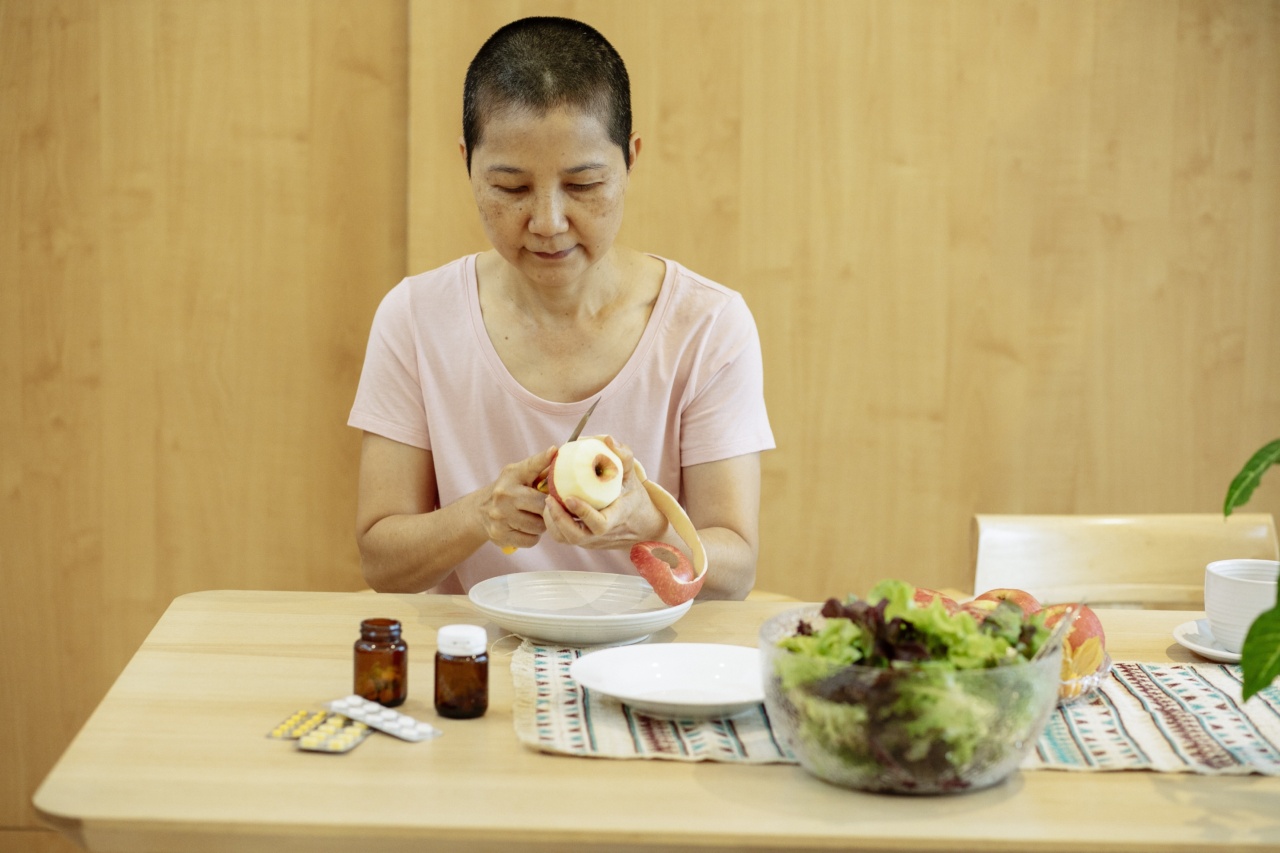When it comes to preventing cancer, maintaining a healthy lifestyle is key.
Alongside regular exercise and avoiding risky behaviors such as smoking, adopting proper nutritional habits can significantly lower the risk of developing various types of cancer. While no diet or specific food can guarantee cancer prevention, research suggests that certain nutrients and dietary patterns can play a crucial role in reducing the likelihood of cancer.
In this article, we will explore some essential nutritional habits that can help keep cancer at bay.
1. Consume a Colorful Variety of Fruits and Vegetables
A diet rich in fruits and vegetables has long been associated with a reduced risk of cancer.
These colorful plant foods contain a wide array of vitamins, minerals, antioxidants, and phytochemicals, which work together to protect against cellular damage and inhibit the growth of cancer cells. Aim to include a diverse range of fruits and vegetables in your daily meals and snacks, choosing different colors to ensure a wide spectrum of beneficial compounds.
2. Choose Whole Grains over Refined Grains
Whole grains, such as whole wheat, oats, brown rice, and quinoa, retain their natural fiber and nutrient content, unlike refined grains that have been stripped of their bran and germ.
The high fiber content of whole grains aids in digestion, assists in maintaining a healthy body weight, and helps reduce the risk of colorectal cancer. Replace refined grains like white bread and white rice with their whole grain counterparts to reap the cancer-fighting benefits.
3. Opt for Lean Sources of Protein
Choosing lean sources of protein, such as fish, poultry, legumes, and tofu, is a wise nutritional habit that supports cancer prevention.
While red and processed meats have been linked to an increased risk of certain types of cancer, lean protein sources provide essential nutrients without the harmful effects. Additionally, plant-based proteins like legumes and tofu offer the added benefit of being high in fiber and low in saturated fat.
4. Consume Healthy Fats
When it comes to fats, not all are created equal. Avoid trans fats found in processed and fried foods, as they have been associated with an elevated risk of cancer. Instead, focus on incorporating healthy fats into your daily diet.
Sources of healthy fats include fatty fish like salmon, avocados, nuts, and seeds. These fats provide important omega-3 fatty acids, which possess anti-inflammatory properties and contribute to overall health and well-being.
5. Limit Added Sugars and Sweets
Excessive consumption of added sugars and sugary treats not only contributes to weight gain and obesity but also increases the risk of certain cancers, including pancreatic and breast cancer.
High intake of sugary foods and beverages can lead to elevated insulin levels and inflammation, creating an environment that promotes cancer growth. Be mindful of your sugar intake and opt for natural sources of sweetness like fresh fruits or small amounts of natural sweeteners, such as honey or maple syrup, when needed.
6. Include Cruciferous Vegetables in Your Diet
Cruciferous vegetables, such as broccoli, cauliflower, Brussels sprouts, and kale, are rich in vitamins, minerals, and phytochemicals that have shown promising anticancer effects.
These vegetables contain compounds called glucosinolates, which, when broken down, form biologically active compounds that help combat carcinogens and stimulate the body’s detoxification processes. Including cruciferous vegetables in your meals provides an excellent boost to your overall cancer-preventive diet.
7. Stay Hydrated with Water
Proper hydration is vital for overall health, and it also plays a role in cancer prevention. Drinking an adequate amount of water helps flush out toxins from the body and aids in maintaining optimal cell function.
Make it a habit to drink plenty of water throughout the day, aiming for at least eight glasses. Limit your intake of sugary beverages, as they can contribute to weight gain and a higher risk of certain cancers.
8. Moderate Alcohol Consumption
While moderate alcohol consumption may have some health benefits, excessive drinking has been linked to an increased risk of certain cancers, such as breast, liver, and colorectal cancer. If you choose to drink alcohol, do so in moderation.
The American Cancer Society recommends limiting alcohol intake to one drink per day for women and two drinks per day for men.
9. Incorporate Antioxidant-Rich Foods
Antioxidants are substances that protect our cells from damage caused by free radicals, unstable molecules that can harm DNA and other cellular components. Include antioxidant-rich foods in your diet to help prevent cancer.
Berries, dark chocolate, pecans, kidney beans, and artichokes are examples of foods that are packed with antioxidants. Consuming a variety of these foods ensures a comprehensive range of antioxidants to support your body’s defense against cancer.
10. Practice Portion Control
Practicing portion control is essential not only for maintaining a healthy weight but also for reducing the risk of certain cancers. Overeating can lead to obesity, which increases the likelihood of developing various types of cancer.
Be mindful of portion sizes, listen to your body’s hunger and fullness cues, and avoid indulging in oversized servings. Remember, moderation is key.































